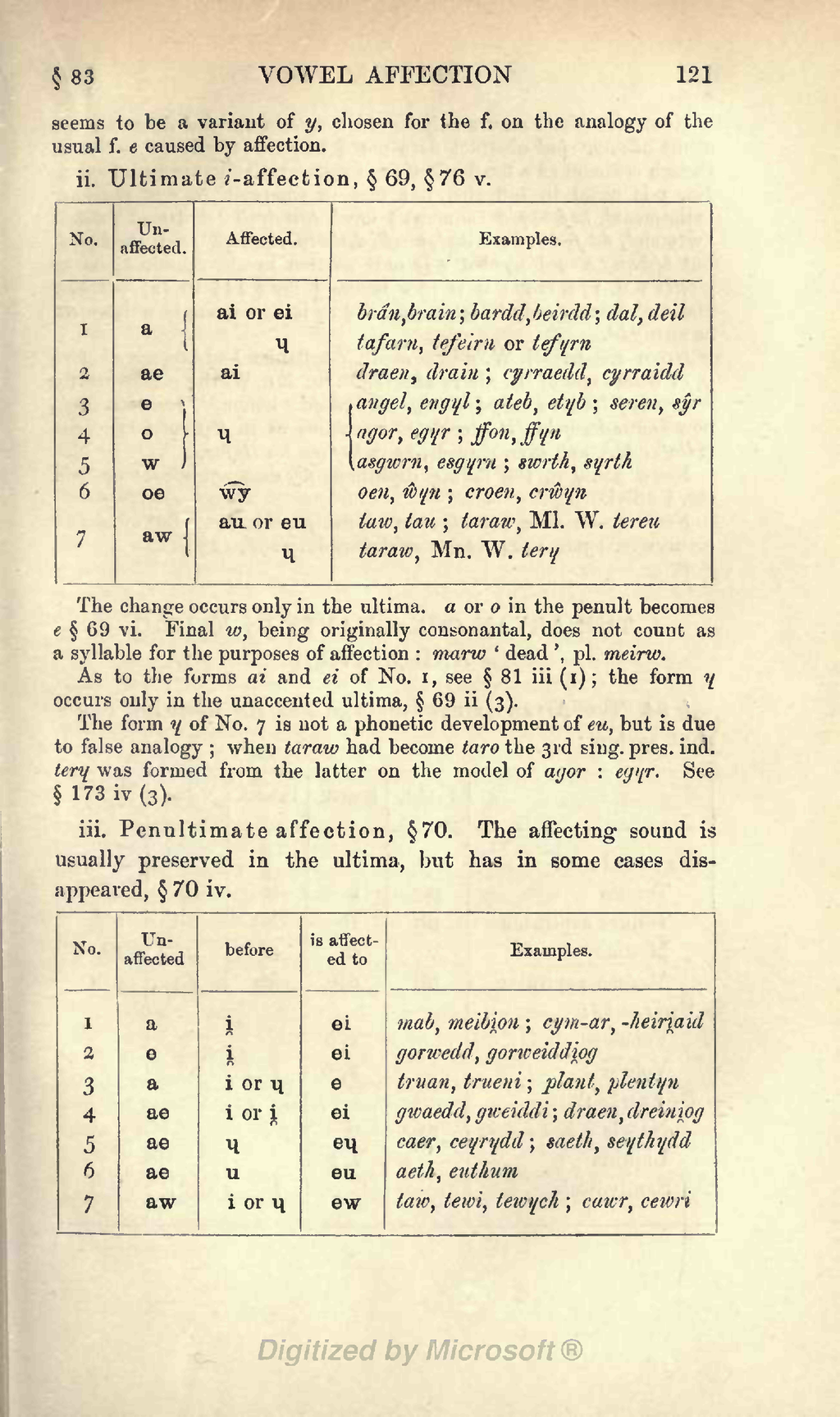seems to be a variant of y, chosen for the f. on the analogy of the usual f. e caused by affection.
ii. Ultimate i-affection, § 69, § 76 v.
| No. | Unaffected. | Affected. | Examples. | |||
| 1 | a | ai or | ei | brân, brain; bardd, beirdd; dal, deil | ||
| ɥ | tafarn, tefeirn or tefɥrn | |||||
| 2 | ae | ai | draen, drain; cỿrraedd, cỿrraidd | |||
| 3 | e | ɥ | angel, engɥl; ateb, etɥb; seren, sŷr | |||
| 4 | o | agor, egɥr; ffon, ffɥn | ||||
| 5 | w | asgwrn, esgɥrn; swrth, sɥrth | ||||
| 6 | oe | w͡y | oen, ŵɥn; croen, crŵɥn | |||
| 7 | aw | au or | eu | taw, tau; taraw, Ml. W. tereu | ||
| ɥ | taraw, Mn. W. terɥ | |||||
The change occurs only in the ultima. a or o in the penult becomes e § 69 vi. Final w, being originally consonantal, does not count as a syllable for the purposes of affection: marw ‘dead’, pl. meirw.
As to the forms ai and ei of No. 1, see § 81 iii (1); the form ɥ occurs only in the unaccented ultima, § 69 ii (3).
The form ɥ of No. 7 is not a phonetic development of eu, but is due to false analogy; when taraw had become taro the 3rd sing. pres. ind. terɥ was formed from the latter on the model of agor: egɥr. See § 173 iv (3).
iii. Penultimate affection, § 70. The affecting sound is usually preserved in the ultima, but has in some cases disappeared, § 70 iv.
| No. | Unaffected | before | is affected to | Examples. |
| 1 | a | i̥ | ei | mab, meibion; cym-ar, ‑heiri̯aid |
| 2 | e | i̥ | ei | gorwedd, gorweiddi̯og |
| 3 | a | i or ɥ | e | truan, trueni; plant, plentɥn |
| 4 | ae | i or i̯ | ei | gwaedd, gweiddi; draen, dreini̯og |
| 5 | ae | ɥ | eɥ | caer, ceɥrɥdd; saeth, seɥthɥdd |
| 6 | ae | u | eu | aeth, euthum |
| 7 | aw | i or ɥ | ew | taw, tewi, tewɥch; cawr, cewri |



